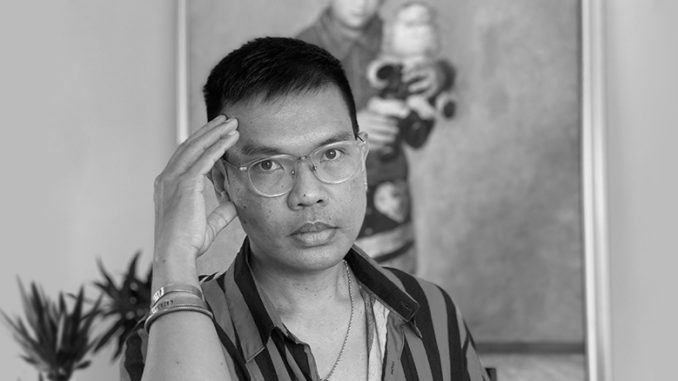
When the news of an outbreak came in January of 2020, I was deep in the archives of the Ateneo. There was no name yet for the illness that months later would force nations to close their borders and bring the global economy to its knees. But the first signs of a disaster were being felt in the archives. Researchers and staff started wearing masks as information about the severity of the virus started trickling in. Prior to the outbreak, I would be the only one to wear them to protect myself from allergy rhinitis. I had been awarded a research sabbatical for an old project the year before, and I found myself with an extra time to conduct new research. My book, Children of the Postcolony: Filipino Intellectuals and Decolonization, 1946-1972 (Veric, 2020), hereafter cited as COTP, was in the final stages of preparation. Buoyed by my initial findings in that book, I wanted to expand its scope and pay a much closer look at key cultural institutions that made it possible for the field of Philippine Studies to emerge after 1946.
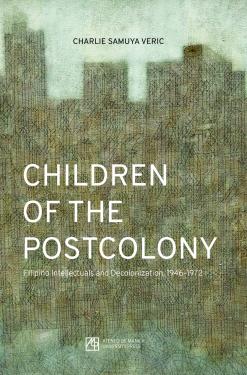
It never occurred to me, however, that the pandemic would put the central arguments of my book in stark relief. Threatened by COVID-19, I had to stop going to the archives to avoid exposing myself to possible infection. Suddenly, the historical invisibility that I was bemoaning in COTP became a real predicament. Quite literally, I had to choose between writing history and potentially losing life. The choice was clear. When the lockdown of Manila became imminent in March, I left the capital for my home province to escape the apocalypse.
Five months later in August and lucky enough to remain safe, I taught my first fully online class – a graduate seminar on literary and cultural theory – from the island where I was born. In the short reflection that follows, I hope to describe how the key arguments of COTP intersect with the peculiar burdens of teaching in the context of a pandemic. As I will show, the relevance of the book’s arguments and the challenges of teaching scholarship become more salient in the face of a pandemic that threatens the core values and institutions of Filipino society. My intention is to emphasize how pandemics are not only epidemiological, but are also deeply social and historical. Namely, pandemics have a social past. COVID-19 may be new, as others have observed, but the social and historical conflicts it lays bare are not. To understand the crisis that pandemics generate, then, is to account for the origins of social and historical conflicts. Such crisis, I will argue, is related to the questions of historical occultation, on one hand, and intellectual scarcity, on the other. If such questions were to be resolved, they demand novel perspectives for scholarship to remain relevant and for Philippine Studies to flourish after COVID-19. It is to these aspects that I wish now to turn.
COTP Revisited
COTP is an intellectual history focusing on the ideas of five figures who came of age after Philippine independence from the United States in 1946: namely, the poet Edith Tiempo who established the first creative writing workshop in Asia; the painter Fernando Zobel who founded the first museums of modern art in the Philippines and Spain; the scholar Bienvenido L. Lumbera who transformed the appreciation of Philippine literature in the vernacular; the theorist E. San Juan, Jr. who pioneered the study of ethnic Filipinos in the US; and the revolutionary Jose Maria Sison who launched the world’s longest-running Communist insurgency that remains active to this day.
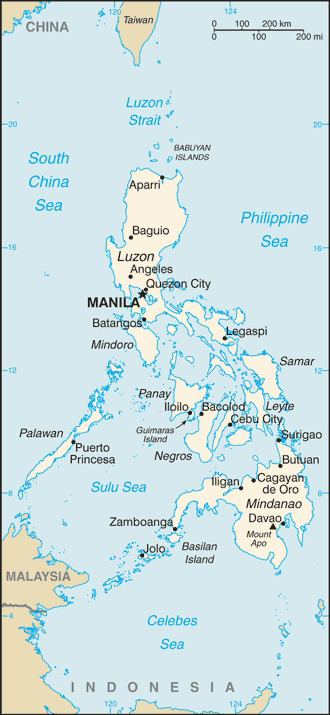
Reconstructing the immediate context of the rise of postcolonial knowledge in the decades following independence, the book describes what it calls the Ileto effect, named after the Filipino historian Reynaldo Ileto who was part of the first cohort of doctoral students in the Southeast Asian Studies program at Cornell University. The Ileto effect refers to the forgetting of the historical origins of the Filipino postcolony, a phenomenon based on Ileto’s ignorance of nationalist historians like Teodoro Agoncillo when he arrived in Ithaca due to the colonial orientation of his early education under the American Jesuits at the Ateneo. In particular, it names the paucity of historical studies on the founding decades of the postcolony, a scandal given the tremendous political value of 1946 to the global trajectory of decolonization.
As I try to show in my book, such historical occultation is the result of the culture war wherein US Cold War interests systematically infiltrated the intellectual organs of Filipino decolonization and captured its radical promise. In particular, they penetrated some of the key institutions of postcolonial knowledge production, particularly the journal Philippine Studies, the Institute of Philippine Culture, and the Ateneo de Manila University Press. These institutions coincided with, and actively spurred, the rise of postcolonial humanities and social science research, essentially signaling the institutionalization of a decolonizing Philippine Studies as a field of scholarship. But not too far behind were the covert neocolonial incursions of American Cold War interests in the Pacific.
As must be clear, scholars in the Philippines are still grappling with the consequences of the American infiltration of Filipino decolonization whose aftereffects include the continuing forgetting of the foundation of the postcolony. The making of COTP itself reflected the challenge facing contemporary scholars of Philippine Studies: how to reconstruct the past of a thwarted decolonizing project. I was not fully conscious of it then, but one of my earliest realizations of the Ileto effect was when I first worked on the Zobel essay. I was curating an exhibition for the Ateneo Art Gallery in August of 2016, and part of my preparation was to look at its history since its founding in 1960. When I asked the director if there was a written history of the gallery, Boots Herrera gave me an unpublished mimeographed document originally written by its founding curator, Emmanuel Torres. There was nothing else apart from that crumbling document, neither a book nor an anthology befitting the prestige of the first museum of modern art in the Philippines. When I asked for a full list of the artworks in the collection, I was given a small wooden box of randomly arranged index cards, some with photos peeling off. No catalogue that accounted systematically for the collection existed. I was dumbfounded. As I would realize again in my research on the Ateneo journal, institute, and press in 2017, chaos defined the fate of official documents in the archives. One would think that an institution with almost a hundred sixty years of history like the Ateneo would have a dependable system of recordkeeping.

When I returned to the archives in the first quarter of 2020, their general state remained the same – understaffed, underfunded, disorganized, and neglected. Such historical occultation became even more obvious when COVID-19 struck. As the country unraveled due to the pandemic, the disarray of the archives became but a mirror of the formlessness of postcolonial history itself.
Misfit Theories in States of Scarcity
How, then, do we teach Philippine Studies now? What does COVID-19 reveal about the limits of scholarship in the Philippines? As we shall see, COVID-19 discloses how the arguments of COTP regarding occultation can help to explain the peculiar realities of scholarly scarcity in the country, a situation that ultimately demands deep changes in scholarly methods and attitudes. That is to say, there is a connection between historical occultation and intellectual scarcity, and the shortest way to their dissolution lies in the transformation of Filipino scholarship and the way it is understood today.
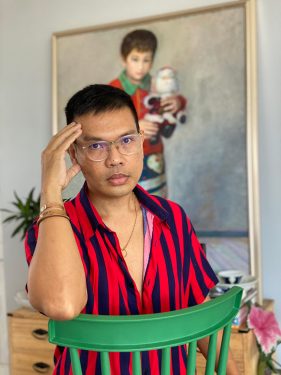
Commentators have observed, for example, that the pandemic is exposing longstanding policies that have led to the collapse of social institutions in the midst of the global health crisis. Consider capitalism’s acceleration of climate change, resulting in more viral outbreaks. Consider, too, the neoliberal rejection of socialized healthcare, crippling hospital response to mass emergencies. In the context of teaching and scholarship, COVID-19 highlights the deep inequalities that generate and sustain intellectual scarcity in the postcolony.
One of the biggest impacts of the pandemic on teaching, for instance, is connectivity inequality wherein those in Manila enjoy a relatively more stable internet than those in the provinces. This is rather obvious but what is not so obvious is the fact that most of the graduate students that our department gets, and therefore most of the students that I get in my seminars, are from the provinces. Employed by regional colleges and universities, they come to Manila with state-funded scholarships, and the assumption is that that they will upgrade teaching and scholarship when they return to their home provinces. Needless to say, most of them have inadequate previous training in scholarship. We therefore see that behind the connectivity inequality that marks the relation between the center and the periphery are other inequalities that sustain intellectual scarcity in the postcolony. To be sure, the pandemic is not solely responsible for such persistent inequalities. But what the pandemic does is to highlight scarcities, forcing us to reconsider the way scholarship and teaching are approached, especially in the Philippines.
Indeed, I myself have been forced to rethink my own assumptions about humanistic inquiry in the face of the intellectual scarcity that defines much of contemporary scholarship in the Philippines. In my graduate classes on literary and cultural theory, for instance, I used to open the semester with readings on what may be called the crisis narratives – the jeremiads of the end of the humanities, of literary studies, of doctoral studies, and of comparative literature, among others. Anglo-American critics are, of course, the usual authors of such dire stories. I required my graduate students to read such sobering pieces to initiate them into the “reality” of the field as future scholars. What I had not expected was how the peculiar realities of my graduate students’ backgrounds vigorously contested the Anglo-American crisis narratives that I was asking them to accept. What crisis were we confronting exactly as scholars in the Philippines? I soon realized that the crisis of the disciplines, which Western critics and thinkers were quick to proclaim, was incompatible with the experiences that my graduate students had brought into the classroom. Theirs was not a condition of crisis as much as of scarcity. In fact, our conversations led us to see that the study of literature and culture in their regional contexts ultimately represented an opportunity, one that resulted precisely from widespread scarcity. Namely, the regional colleges and universities from which they came did not have the experts who could study the embarrassing richness of local lives. The objects of study were there, but the scholar was not, much less the right methods and attitudes.
The New Filipinists
Smack in the middle of a pandemic that threatens to obliterate our deepest assumptions about ourselves, we find two conditions that define the challenges of Filipino scholarship in our time. On the one hand, there is the Cold War legacy of historical occultation that muddles what we know about the Filipino postcolony and diminishes the insurgent spirit of decolonization as a political project after 1946. If American neocolonial designs were behind the emergence of Philippine Studies as a field of scholarship after independence, then we must revisit its methods and inquire into its effects on Filipino institutions of postcolonial knowledge production. Needless to say, what we know about the covert capture of the decolonizing mind remains scarce, a historical paucity that requires our immediate collective attention. On the other, there is the intellectual scarcity that hobbles the development of new scholars from across the nation. Coming from regional colleges and universities that are structurally disadvantaged, these apprentices are ill-prepared for the rigors of scholarship. Compounding such inequality is the bad state of advanced study in the country. In the academic year 2014-2015, for instance, the Philippines produced barely a hundred new doctorates in such fields as applied and social sciences, technology, and mathematics (Saloma 2016, v). In the same period, less than 13% of the professoriate in higher education held a doctorate. If the growth rate was projected at 0.3% per annum, a mere 14.5% of the Philippine collegiate faculty would have their PhD degrees today. In comparison, South Africa produced 3,265 new doctorates in 2019 (Qhobela 2020, 4) whereas the United States had 71,000 in 2017 alone (Hutt 2019).
This explosive combination of historical occultation and intellectual scarcity poses a clear and present threat to the well-being of the nation, with effects as enduring as those of the pandemic. If the former requires the rethinking of postcolonial history, the latter shows the real limits of this important work given the shortage of scholars who face a double burden: to overcome the structural limits that prevent their development and to reevaluate the modes of knowledge production that are now dominant in the Philippines. Never perhaps has the state of the Filipino academy been more endangered since 1946. As must be clear, the harmful combination of occultation and scarcity secures nothing less than the perpetual dependency of the Filipino consciousness. The proofs of such a dependency are ubiquitous: from a president who simply awaits the arrival of foreign vaccines to the instant capture of Filipino online teaching delivery by Instructure, Inc., the US company that runs the educational technology.
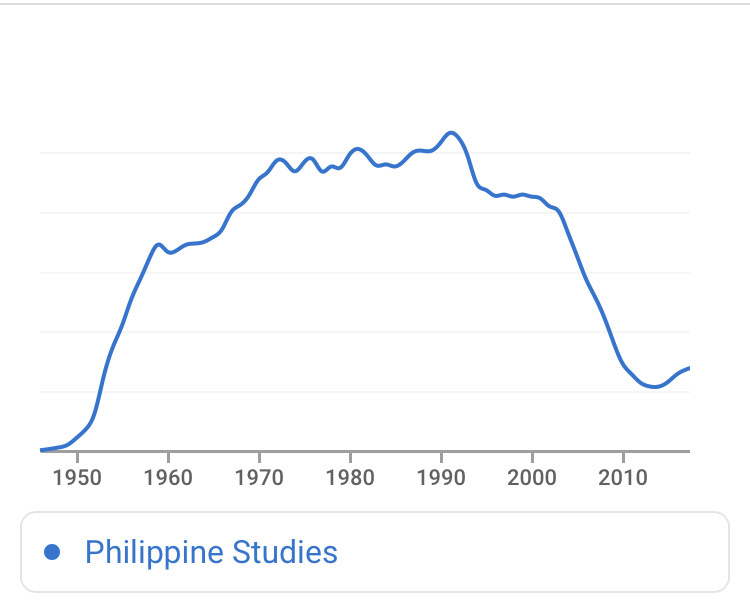
Make no mistake. The future of Philippine Studies is on trial. If n-grams are any indication, the field is declining. It gained traction after 1946, taking off in the 1950s and 1960s owing largely to US Cold War largesse, before falling sharply in the wake of the EDSA Revolution of 1986 and the centenary of the First Philippine Republic in 1998 (Fig. 1). Is the decline an indictment of the failure of Philippine Studies to address historical occultation and intellectual scarcity? Is its irrelevance an outcome of its complicity in perpetuating a culture of dependency? Standing on the precipice of our arrested independence, before the chaos of the archives and the death toll from the virus, we must hail the New Filipinists whose special hope includes the reclamation of the postcolonial mind.
Charlie Samuya Veric
Charlie Samuya Veric is a critic, poet, and curator. He is the author of bestselling and acclaimed poetry collections, Histories (2015) and Boyhood: A Long Lyric (2017), both from Ateneo de Manila University Press. His third book of poetry from the University of the Philippines Press, The Love of a Certain Age (2019), explores intergenerational relationship in the age of online dating applications. Charlie Samuya Veric holds a PhD in American Studies from Yale University and is Associate Professor of English at the Ateneo de Manila University.
References:
Hutt, R. (2019). Which Countries Have the Most Doctoral Graduates? World Economic Forum, October 15, 2019. https://www.weforum.org/agenda/2019/10/doctoral-graduates-phd-tertiary-education/
Qhobela, M. (2019). Overview by the Chief Executive Officer. In Annual Report 2018-2019. National Research Foundation, 4–5. https://www.nrf.ac.za/document/annual-performance-report-2018-19
Saloma, C. (2016). The Cost of a PhD Degree. Philippine Journal of Science, 145 (4) (December): v-vi.
Veric, C. S. (2020). Children of the Postcolony: Filipino Intellectuals and Decolonization, 1946-1972. Quezon City: Ateneo de Manila University Press.

